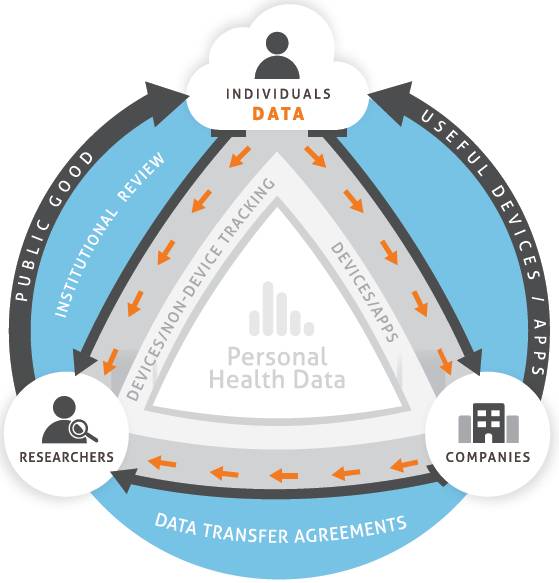This is a graph of aggregate data from Jawbone,a wristband that people wear that tracks their steps throughout the day and their sleep patterns during the night. (h/t Robert Scoble) This aggregate data shows exactly when and how many people in the San Francisco were bolted awake by the recent Napa Valley earthquake. This is one of the first reports using “Personal Health Data” in aggregate, using data points around sleep tracking to look at a natural disaster. As Jacob Harold mused on Twitter, “In such a moment of something so powerful and scary as an earthquake, technology can only observe.”
The Jawbone has previously put out aggregate data reports around sleep habits of those that wear its device. For example, this report that ranked most sleep-deprived cities around the world. The data that is being collected from the Jawbone device and other similar devices such as the fitbit is being called “Personal Health Data.” If you’re asking yourself how Jawbone has got access to all of this user data: The users opt in to the anonymous data-mining when they sign up for the app. That’s also the scary part because there are no clear policies protecting people’s privacy of their individual data. It opens up the question: Who owns our data?

Personal Health Data goes beyond collecting sleep metrics. In addition to tracking data points like heart rate or blood pressure, these tools also enable individuals to record and analyze their behavior such as physical activity and diet, and sleep habits as in the example above. The value to an individual is that they are able to track their health and can change their behavior to a healthier lifestyle. Now, researchers are interested in using this data to better inform public health research, but there are some thorny issues to navigate to make this a reality.
The Robert Wood Johnson Foundation is supporting Health Data Exploration that is looking at a path towards responsible health data research. Data ethics, data ownership and privacy are big concerns that are being examined. This a big topic in the open data and nonprofit big data field.
Data scholar Lucy Bernholz wrote this great primer on The Why of Data Ethics that lays out the big questions to be addressed at an upcoming conference at Stanford on the topic.
- How data are being used to frame the issues on which nonprofits and voluntary associations work and what civil society can do about it;
- The realities of association and expression in a digital age and what these changes mean for civil society
- How scholarship is changing in a digital environment;
- The rights of those being served by nonprofits and civil society;
- Ethical dilemmas for civil society organizations using digital data and how to work through them;
- Ethical ways civil society and industry sources of digital data can work together
@p2173 @NoelDickover @kanter It’s nice when friends connect. No data use is fully knowable w/o clearer rules/structures around storage/use.
— Capture the Ocean (@CapturetheOcean) August 26, 2014
When I tweeted this graphic and link to the article, a Twitter discussion ensued. A few unanswered questions:
- Sensors providing “anonymous” data w/user consent (or not) most likely will be pervasive, many uses of which are unknowable
- Opendata question is also critical – how do you know whether data you release will be dangerous in future mashups?
- How long will this data be stored?
This lead me to a project called “Capture the Ocean,” a research project designed to help identify and understand the laws regulate the collection, use, and storage of data. The partners include a mix of researchers and practitioners, including DoSomething.Org and DataKind.
I am huge fan of fitness devices and I personally have gotten a lot of benefit from being able to track my personal health metrics. I have even shared and exchanged screen shots of my step counts with colleagues to keep us motivated to keep walking and reach our fitness goals.
@louisgray impressive! 10k more than my wed! pic.twitter.com/rFeYtDd85q
— Beth Kanter (@kanter) August 24, 2014
However, one can’t help to wonder the consequences of giving your data over to a private company without a clearly defined policies that protects us. Does this mean that I will get unsolicited emails from sportswear, sports nutrition companies and companies that sell shoes? Will adds for those types of products follow me all over the Internet and Facebook? Can or will the company that makes the device I wear sell my individual data to companies that could market products to me? Will an insurance company be more likely to approve my life insurance because they have data that shows I have a healthy lifestyle?
What you think?
